Research | Corporate Capture | Human Rights
On Thursday, September 12, a discussion entitled “Challenges in the Defense of Human Rights in the Face of Business Practices” was held, which brought together a dozen civil society organizations committed to the rights of consumers, human rights, transparency and corporate accountability in different industries such as tobacco, food, sugared beverages, extractive industries, among others. In this event, hosted by PODER, the organizations presented research, campaigns and citizen initiatives to discuss the obstacles they face in the defense of human rights due to business practices, focusing on the impacts they have on children, youth and rural communities.
Over the course of 4 hours, the participating organizations, Polithink, the National Institute of Public Health (INSP), Consumer Power, Campaign for Tobacco-Free Kids (CTFK), Tec-Check, the ContraPESO coalition, Greenpeace, Engenera, Vital Strategies and PODER, analyzed the impacts of corporate power in the construction of misleading messages and narratives.
Tec-Check highlighted the challenges that exist in advertising generated in the digital sphere promoted by the so-called influencers, whose impact in Mexico is equivalent to 240 million dollars. However, regulatory mechanisms in our country are weak, which benefits large companies and exposes youth and children to harmful health products such as tobacco, alcohol and ultra-processed foods and sugary drinks. ContraPESO reiterated the difficulties to achieve policies to ban unhealthy foods in schools.
The phenomenon of corporate capture through media, legal and lobbying pressure on the legislative and judicial branches was also addressed. Special attention was paid to the importance of having tools to identify cases of conflict of interest such as the contraconflictodeinteres.org project in the tobacco industry or the excessive use of lobbying and the importance of having policies for the filtering of information (whistle-blowing) from the Vital Strategies research on IQOS in Japan. For its part, INSP addressed the role of new tobacco products and, in particular, heated tobacco products (HTP). PODER presented research that addresses the supply chain of HTPs and is associated with extractive industries, whose impacts on human rights and the environment are high.
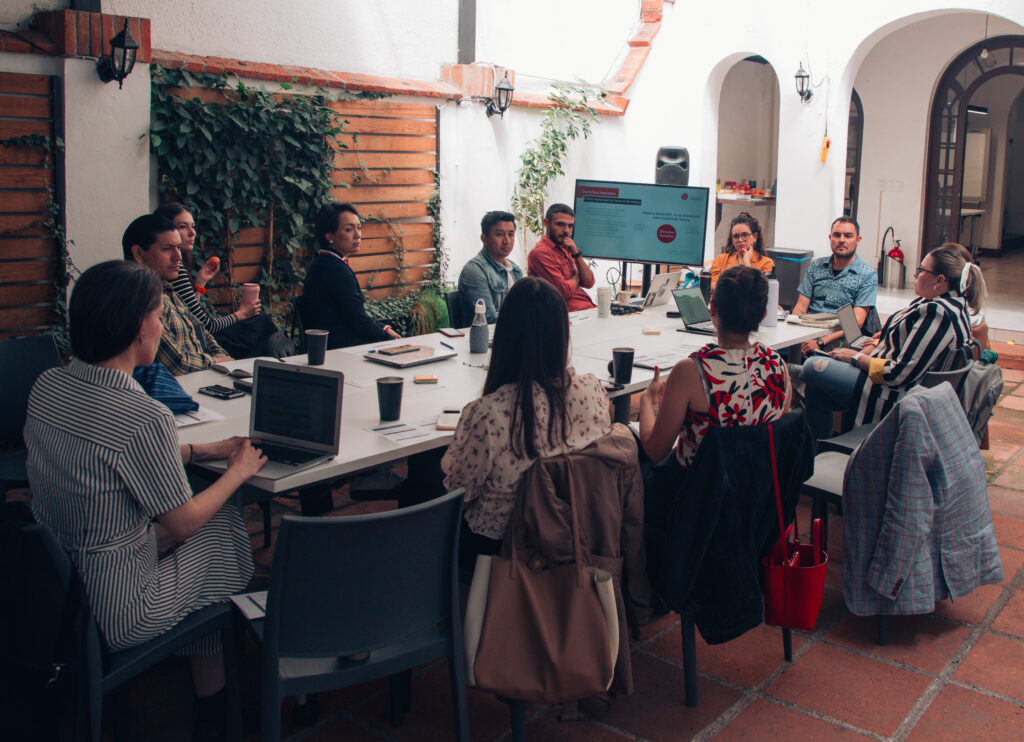

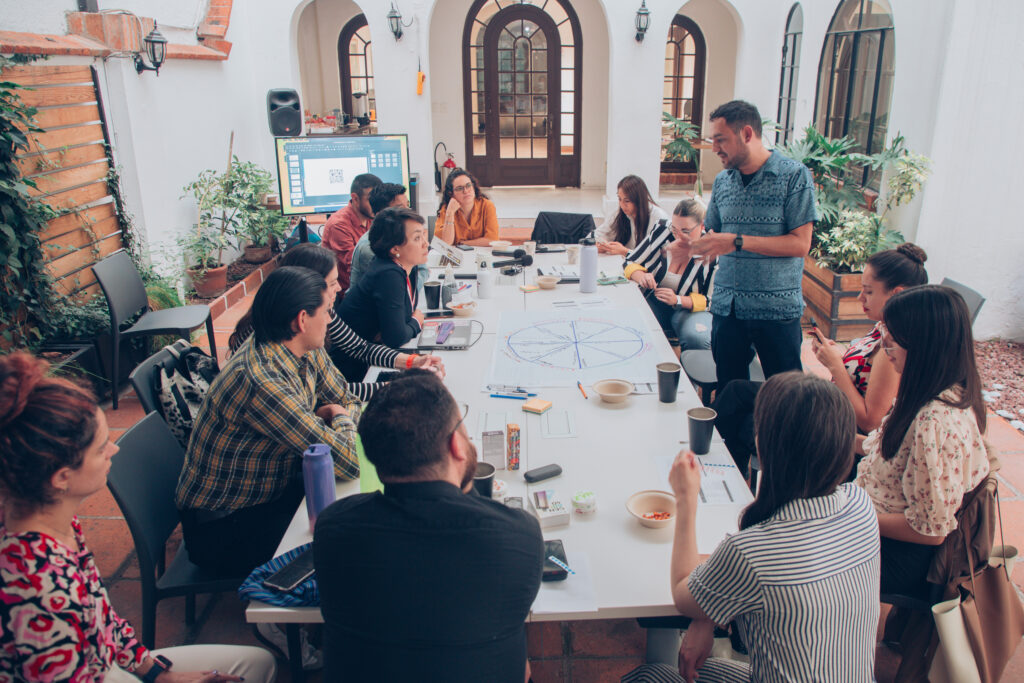
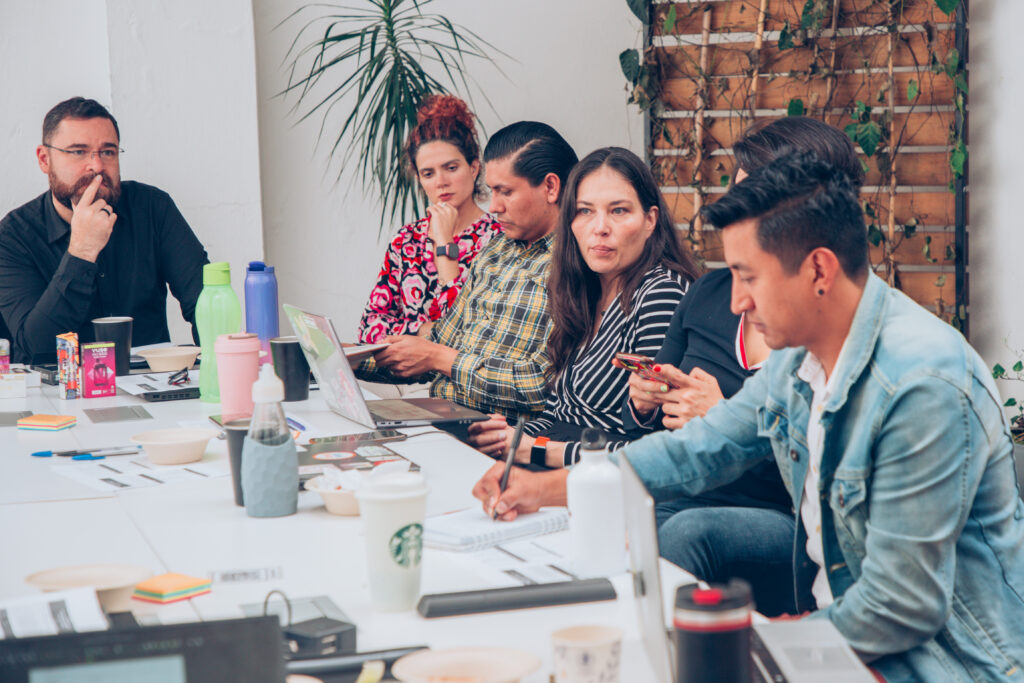
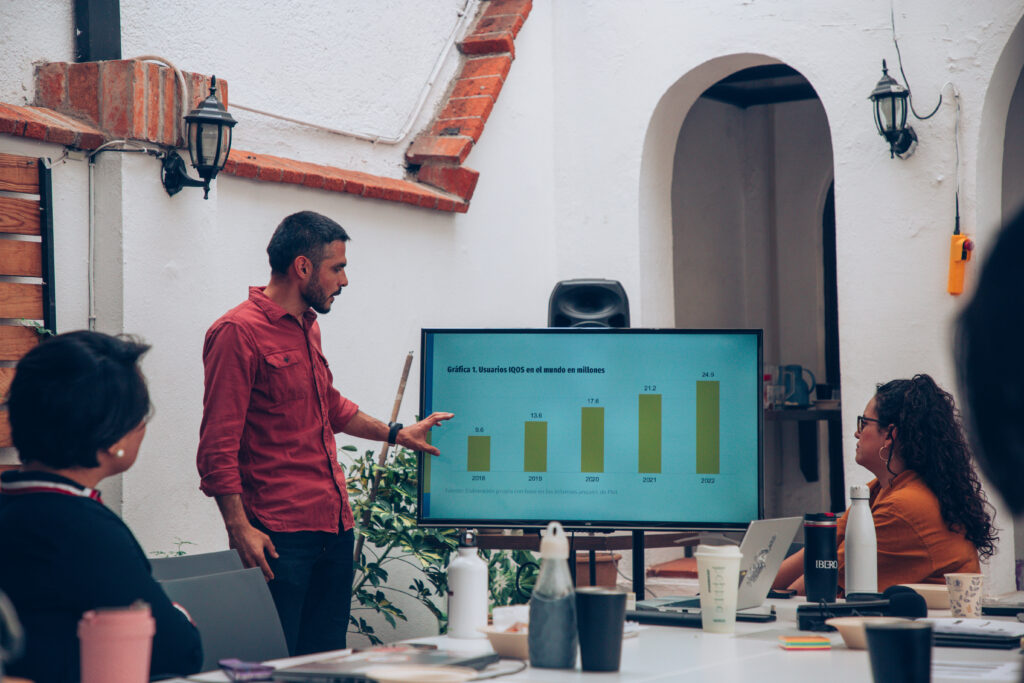

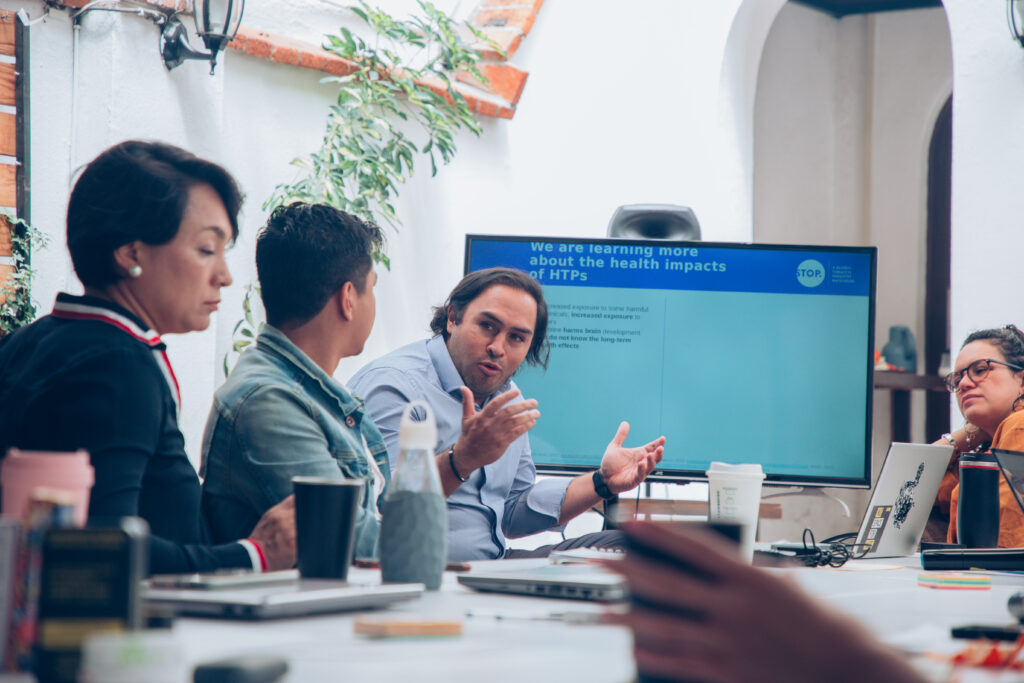

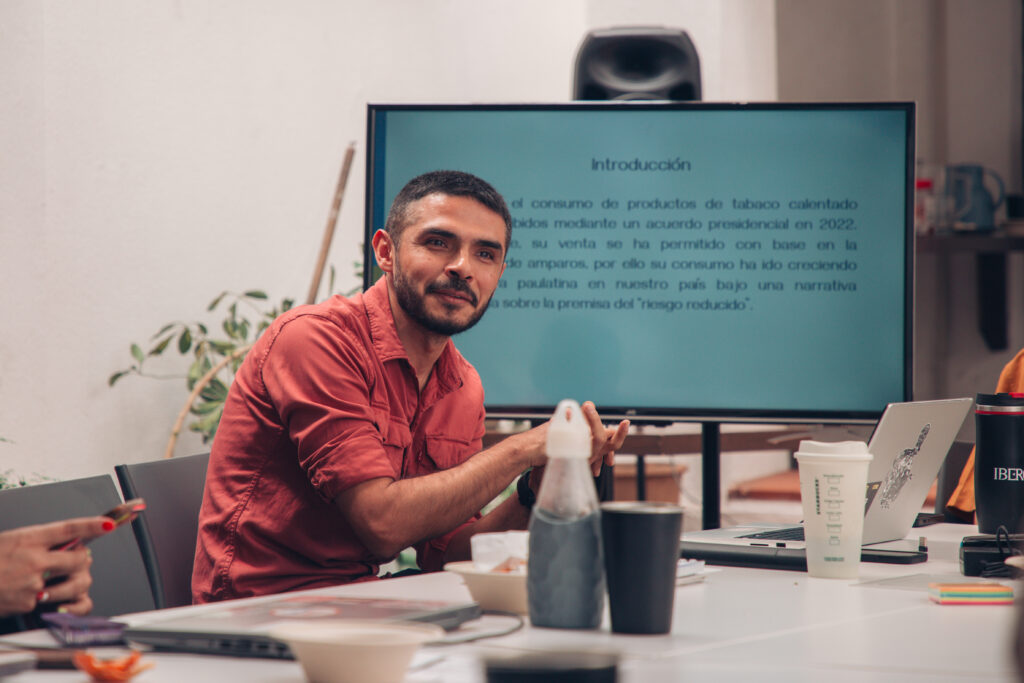
CTFK emphasized the essential framework provided by the Universal Human Rights System to promote tobacco control measures, through the use of litigation to ensure accountability and as a tool for justice. Coincidences were identified in the way that large corporations exert their influence to push for major studies on the harmful effects of tobacco use.
Greenpeace addressed the way in which industry has blocked legislative reforms that seek to eliminate plastics used in the packaging of different products and whose polluting effects are devastating for the environment and marine life. Meanwhile, Engenera shared the experience of civil society advocacy around the Mining Law and the obstacles and resistance presented by the mining industry.
This influence and conflicts of interest that tip the balance in favor of the companies means that more and more young people have access to products that are harmful to their health, the environment and the rights of the communities affected by open-pit mining. Likewise, we observe that there is an absence of public policies that regulate and implement the necessary measures to control the distribution and advertising that these companies direct towards different sectors of the population.
This first conversation, which integrated different perspectives and methodologies, was carried out thanks to the support of Vital Strategies and we will continue to seek these meeting points from civil society to combat the excessive power of corporations.
